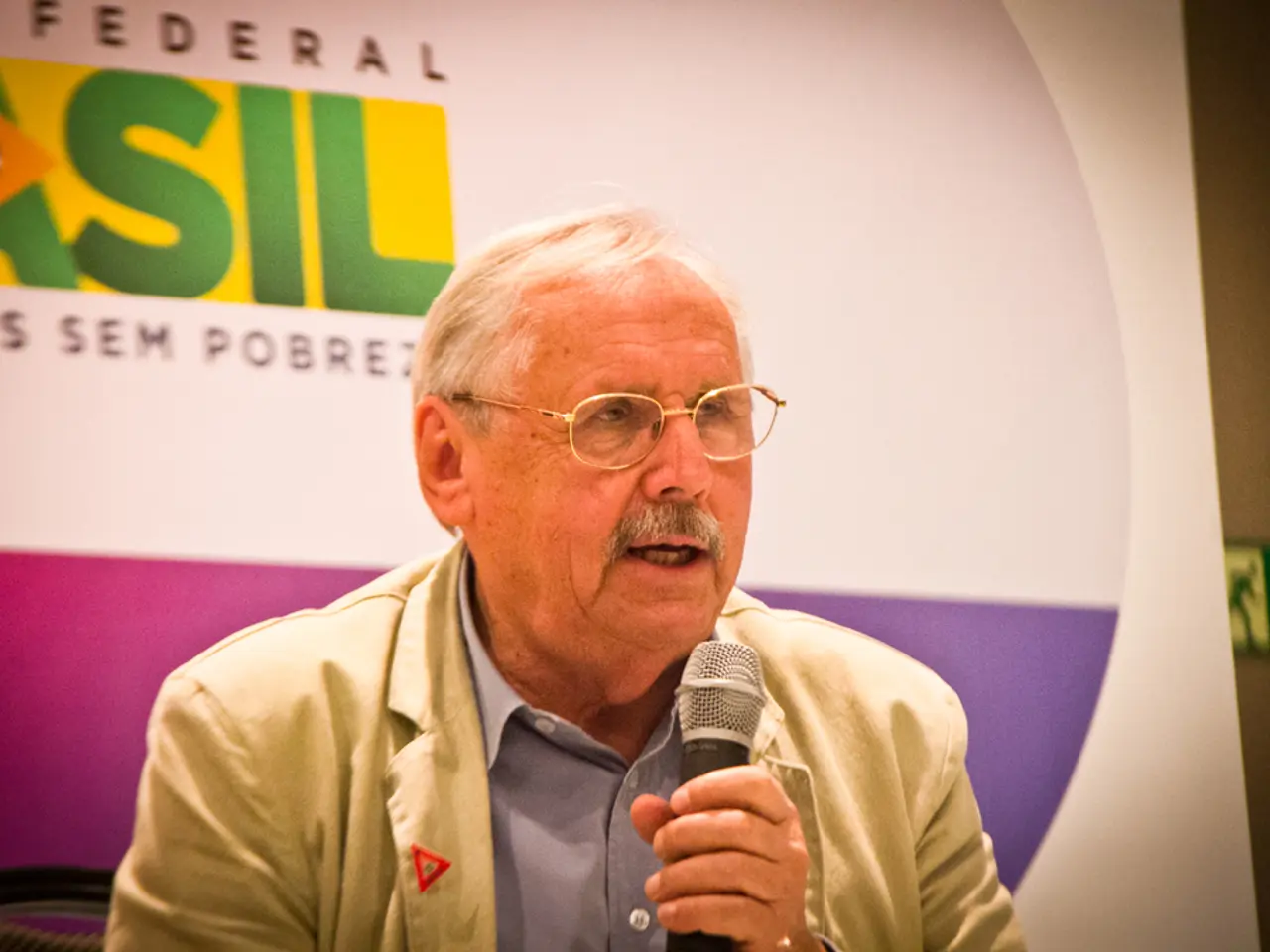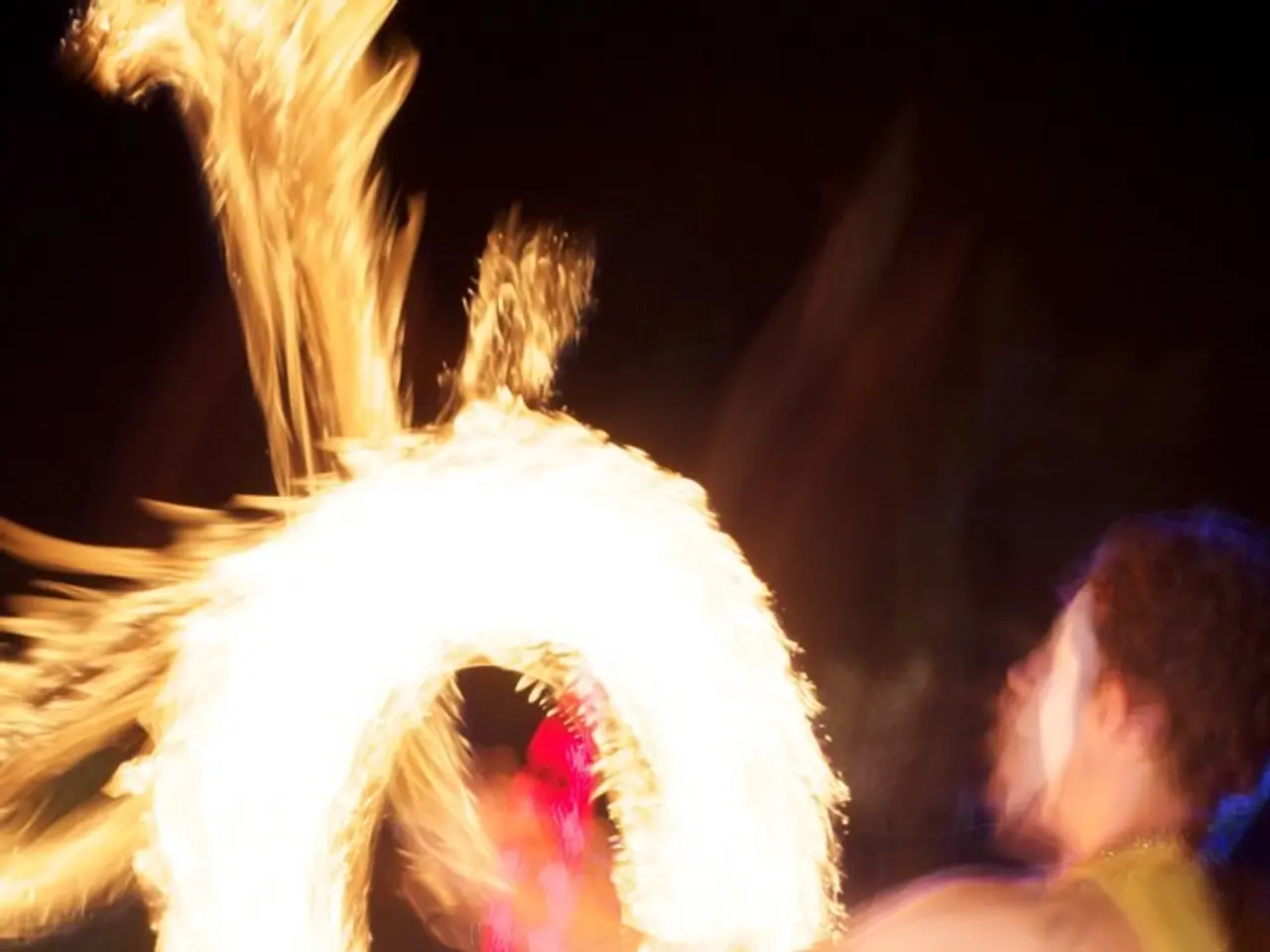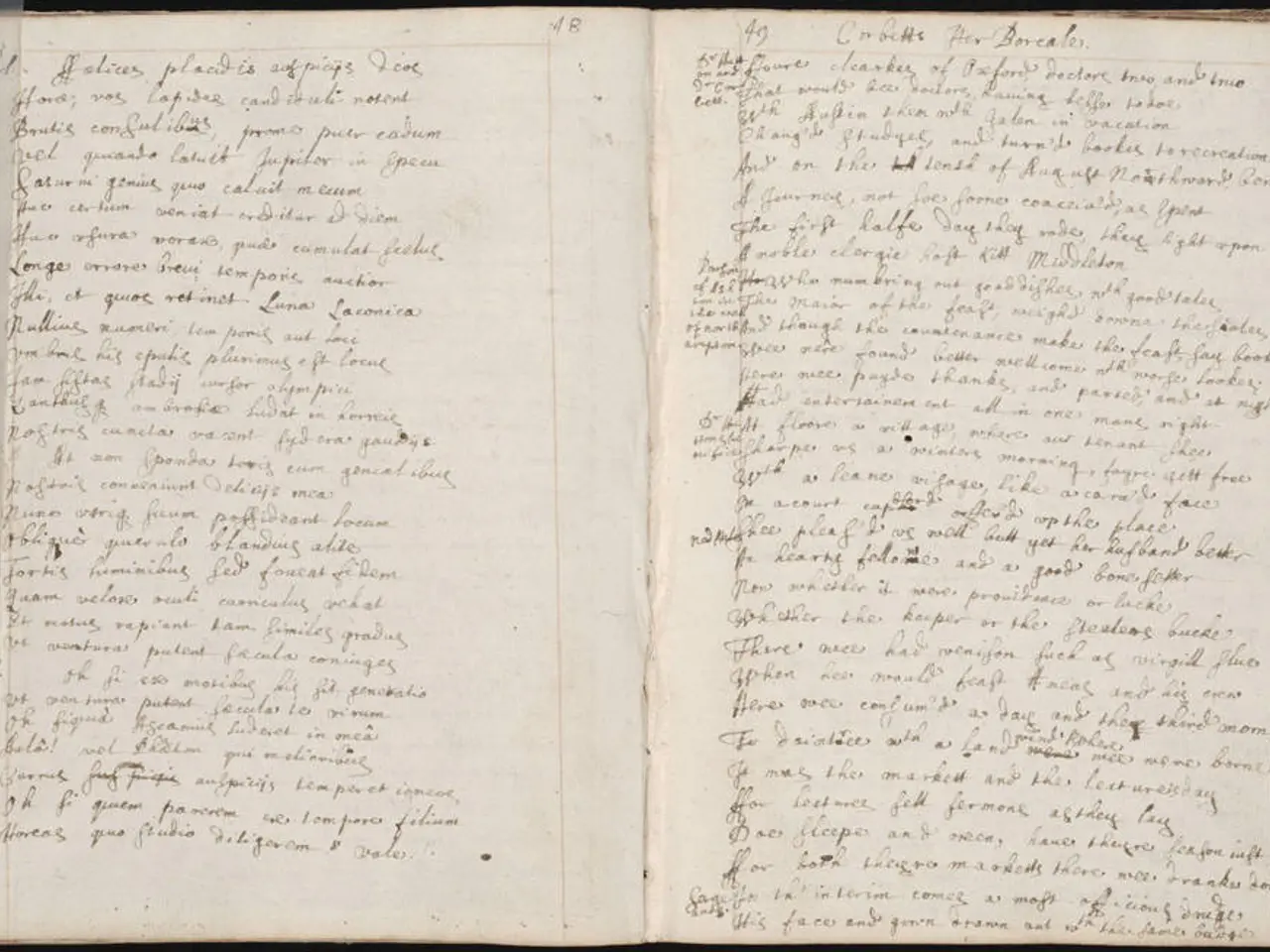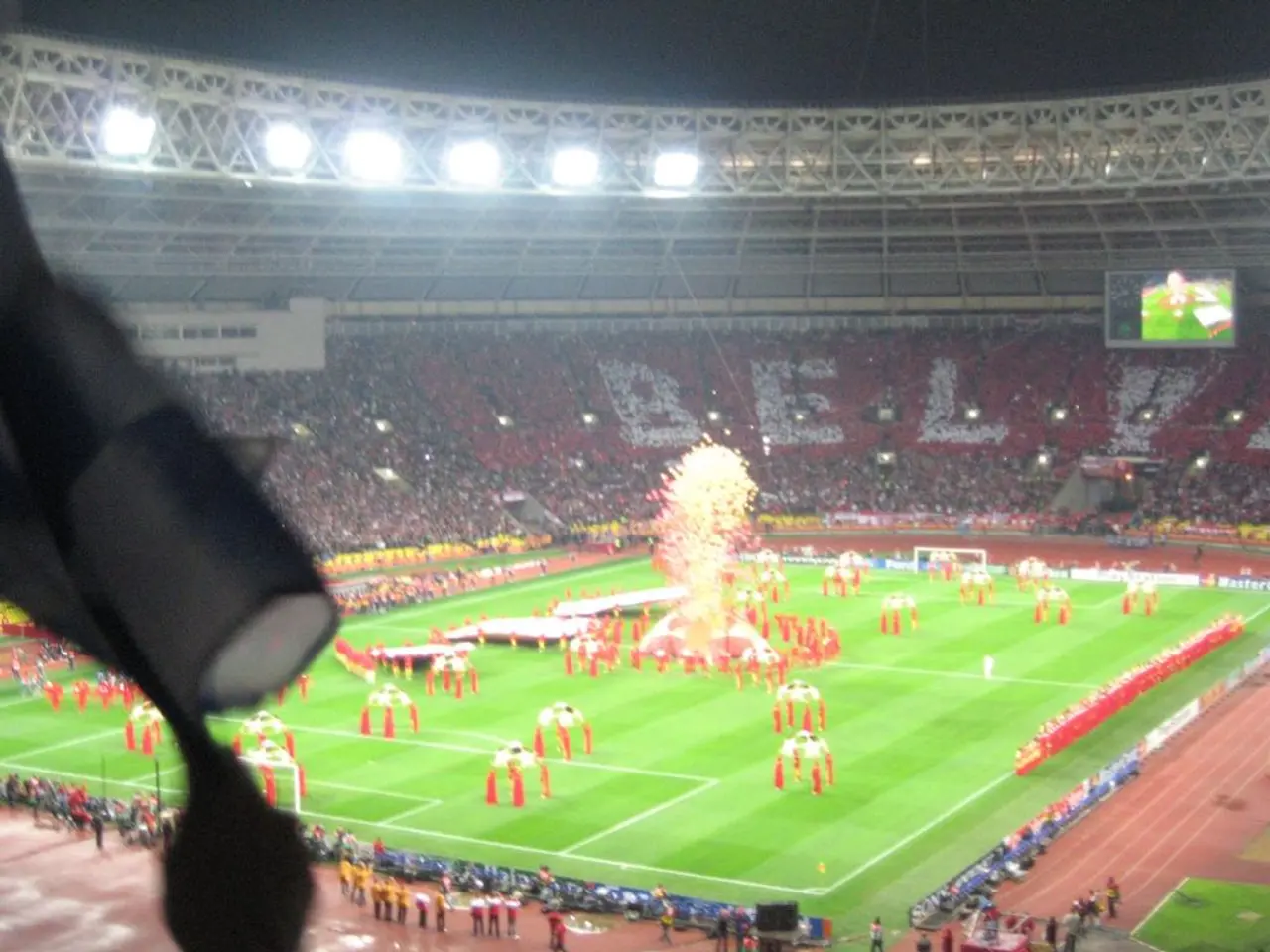Ivory Coast President Ouattara secures route towards fourth presidential term
Alassane Ouattara's Fourth Term Bid Sparks Controversy in Ivory Coast
Alassane Ouattara, the current President of Ivory Coast, has announced his bid for a fourth term in office, a move that has sparked controversy and raised concerns about the state of democracy in the country.
Ouattara, who has been in power since 2011, initially pledged not to seek re-election, a commitment widely seen as a step towards democratic norms. However, he later reversed his decision, justifying his candidacy by constitutional changes allowing a fourth term and citing ongoing security and economic challenges as reasons for his continued leadership [1][2].
The constitutional amendment that enables Ouattara's bid effectively resets the presidential term count, allowing him to bypass previous term limits. This move has been heavily criticized by opposition parties, many of whose key candidates have been sidelined or excluded, allegations that cast doubt on the electoral process's fairness and inclusiveness [3][4].
The opposition has condemned Ouattara’s fourth-term bid as a betrayal of democracy, warning it undermines political pluralism and the rule of law [3]. Observers and critics argue that the incumbent’s maneuvers—constitutional changes, exclusion of opponents, and a late reversal of a no-third-term promise—damage democratic governance in Ivory Coast, risking political stability and citizens’ trust in institutions [1][4].
The disqualifications of opposition candidates have been criticized as damaging to Ivorian democracy and undermining the legitimacy of the electoral process, both domestically and internationally. Notably, Tidjane Thiam, a presidential candidate, has been disqualified from the upcoming election due to his former Ivorian-French dual citizenship, despite renouncing his French nationality [5].
Other notable figures, such as former President Laurent Gbagbo, Charles Ble Goude, and Guillaume Soro, have also been excluded from the election due to legal convictions or restrictions from past political conflicts [6].
Civil society organizations and religious figures, such as the Catholic Bishops' Conference, have voiced deep concern about the increasing political polarization across the nation [7]. The ongoing dispute regarding the exclusion of opposition candidates is reminiscent of the violent electoral conflicts of the past, such as the 2010-2011 crisis that resulted in over 3,000 fatalities [8].
Despite the controversy, Ouattara's announcement was endorsed by the RHDP party members during their second congress in June [9]. The opposition plans to challenge Ouattara's candidacy in court.
The 2025 election will be a crucial test of Ivory Coast's democratic trajectory. With over 8.7 million Ivorians registered to vote [10], the outcome of the election could significantly shape the future of the country.
References: 1. BBC News. (2023, March 1). Ivory Coast: Alassane Ouattara to run for fourth term. BBC. https://www.bbc.com/news/world-africa-59082696 2. Al Jazeera. (2023, March 2). Ivory Coast's Ouattara announces bid for fourth term. Al Jazeera. https://www.aljazeera.com/news/2023/3/2/ivory-coast-ouattara-announces-bid-for-fourth-term 3. Reuters. (2023, March 2). Ivory Coast opposition condemns Ouattara's fourth term bid. Reuters. https://www.reuters.com/world/africa/ivory-coast-opposition-condemns-ouattaras-fourth-term-bid-2023-03-02/ 4. The Guardian. (2023, March 2). Ivory Coast: Ouattara's fourth term bid 'undermines democracy', critics say. The Guardian. https://www.theguardian.com/world/2023/mar/02/ivory-coast-ouattaras-fourth-term-bid-undermines-democracy-critics-say 5. France 24. (2023, March 1). Ivory Coast: former Credit Suisse chief Tidjane Thiam disqualified from presidential race. France 24. https://www.france24.com/en/live-news/20230301-ivory-coast-former-credit-suisse-chief-tidjane-thiam-disqualified-from-presidential-race 6. The Africa Report. (2023, March 2). Ivory Coast: opposition leaders barred from running in presidential election. The Africa Report. https://www.theafricareport.com/152566/ivory-coast-opposition-leaders-barred-from-running-in-presidential-election/ 7. Catholic Bishops' Conference of Ivory Coast. (2023, March 2). Statement on the political situation in Ivory Coast. Catholic Bishops' Conference of Ivory Coast. https://www.cbci.ci/statements/statement-on-the-political-situation-in-ivory-coast/ 8. Human Rights Watch. (2021, June 14). Ivory Coast: Pre-election Violence and Repression. Human Rights Watch. https://www.hrw.org/news/2021/06/14/ivory-coast-pre-election-violence-and-repression 9. RFI. (2023, June 19). Ivory Coast's RHDP party endorses Ouattara's fourth term bid. RFI. https://www.rfi.fr/en/africa/20230619-ivory-coast-rhdp-party-endorses-ouattaras-fourth-term-bid 10. Ivorian Electoral Commission. (2023, February 1). Registration of voters for the presidential election. Ivorian Electoral Commission. https://www.ceci.ci/fr/actualites/inscription-des-electeurs-pour-l-election-presidentielle/
- The controversy surrounding Alassane Ouattara's bid for a fourth term in Ivory Coast has raised concerns about the state of democracy not just within Ivory Coast, but internationally as well, given the implications for war-and-conflicts and political stability in Africa.
- The opposition's plans to challenge Ouattara's candidacy in court, as well as their condemnation of his move as a betrayal of democracy, highlight the polarization in Ivory Coast's society, which could potentially lead to policy-and-legislation and general-news issues that would have far-reaching consequences.
- The exclusion of key opposition candidates, like Tidjane Thiam and Laurent Gbagbo, from the election has been criticized as damaging to Ivorian democracy and the rule of law, echoing past conflicts and raising fears of a return to a violent past.
- Despite the controversy, the electoral process in Ivory Coast will be crucial in shaping the country's future, given the large number of registered voters and the potential impact the election outcome could have on the region and beyond.








